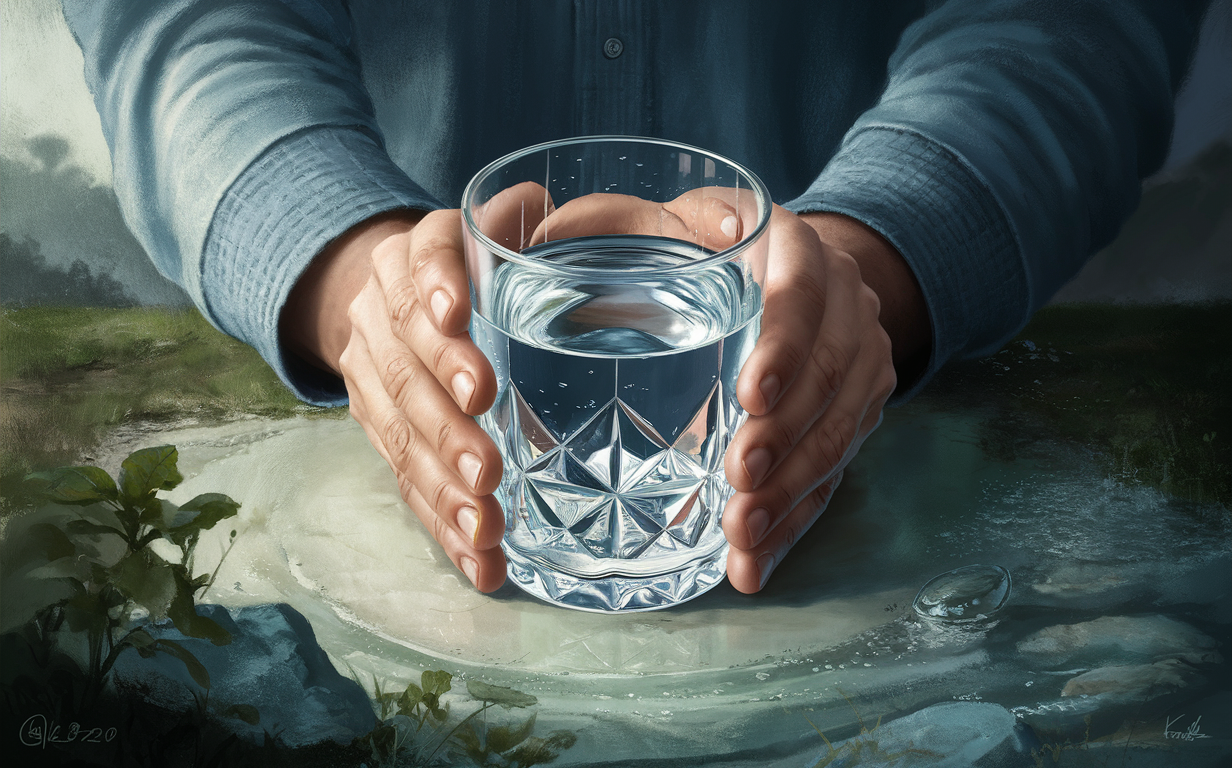BLOG
RECENT UPDATES

Ensuring Safe and Healthy Drinking Water
Ensuring safe and healthy drinking water is crucial for maintaining the well-being of your household. Clean water is a basic necessity that affects every aspect of life, from cooking and cleaning to hydration. In this guide, we'll uncover the importance of water filtration systems, how they work, and why you should consider installing one for your home or business.
- Water filtration systems are essential for removing harmful contaminants like pesticides, arsenic, and chlorine from drinking water.
- Regular maintenance and proper installation are necessary to ensure optimal performance.
- Various types of filters, such as UV light treatment, reverse osmosis, and activated carbon, offer different benefits.
- Free water testing and estimations can help determine the best system for your needs.
- It's important to understand the differences between water softeners and water filters.
The Importance of Safe Drinking Water
Contaminated water can pose severe health risks, including gastrointestinal illnesses and developmental issues. According to the South Florida Water Management District, groundwater in southern Florida can contain over 30 contaminants, including pesticides, arsenic, and chlorine. Ensuring your household has access to safe and clean water can prevent these health risks and improve your overall quality of life.
How Water Filtration Systems Work

Water filtration systems act as a barrier that removes contaminants from your water supply. Here's a breakdown of how they typically function:
Stage One: Pre-Filtration
Water first passes through a pre-filter that captures large particles like sediment, dirt, and rust. This initial stage helps extend the life of the subsequent filters by preventing clogging.
Stage Two: Main Filtration
The pre-filtered water then moves through the main filtration stage, which can include various types of filter media:
- Activated Carbon: Removes chlorine, bad taste, and odors.
- Reverse Osmosis: Eliminates a wide range of contaminants, including heavy metals and bacteria.
- UV Light Treatment: Kills microorganisms and pathogens.
Stage Three: Post-Filtration
In the final stage, a post-filter ensures any remaining contaminants are removed, delivering clean and safe water to your taps.
Types of Water Filtration Systems
Different types of water filtration systems cater to various needs and water conditions. Here are the most common types:
Whole House Water Filters
Whole house water filters treat water as it enters your home, ensuring all water used for drinking, cooking, bathing, and laundry is free from contaminants.
Benefits:
- Improved water taste and smell
- Reduced contaminants in drinking water
- Protection of plumbing and appliances from sediment buildup
Reverse Osmosis Systems
Reverse osmosis systems are designed to provide high-quality drinking water by removing a wide range of contaminants.
Benefits: - Highly effective in removing contaminants - Provides clean drinking water throughout the home
UV Light Treatment
UV light treatment systems use ultraviolet light to kill bacteria, viruses, and other pathogens in water.
Benefits: - Effective against microorganisms - Requires minimal maintenance
Benefits of Installing a Water Filtration System
Installing a water filtration system comes with numerous benefits that can enhance your daily life:
Healthier Drinking Water
Filtered water is free from harmful contaminants, ensuring you have access to safe and healthy drinking water.
Improved Taste and Smell
Removing chlorine and other chemicals from your water improves its taste and smell, making it more enjoyable to drink.
Protection for Plumbing and Appliances
Water filtration systems protect your plumbing and appliances from sediment buildup, extending their lifespan and reducing maintenance costs.
Environmental Benefits
Using a water filtration system reduces the need for bottled water, helping to minimize plastic waste and environmental impact.
Factors to Consider When Choosing a Water Filtration System
Choosing the right water filtration system depends on several factors:
Water Quality
Have your water tested to identify the specific contaminants present. This will help determine the most suitable filtration system for your needs.
Home Size and Water Usage
Consider the size of your home and your water usage to ensure you choose a system that can handle your household's demand.
Filter Maintenance
Understand the maintenance requirements for the system you choose. Regular filter replacements are crucial for maintaining optimal performance.
Budget
Water filtration systems come in a range of prices. Determine your budget and choose a system that offers the best value for your needs.
Installation and Maintenance
Proper installation and regular maintenance are key to ensuring your water filtration system performs effectively.
Installation
While some homeowners may feel comfortable installing a water filtration system themselves, it's often best to hire a professional to ensure the system is installed correctly.
Maintenance
Regular maintenance, including filter replacements and system checks, is essential for optimal performance. Follow the manufacturer's recommendations for filter replacement intervals.
Real-Life Experiences with Water Filtration Systems
Many homeowners and businesses have experienced the benefits of installing water filtration systems. Here are a few real-life examples:
Example 1: The Smith Family
The Smith family in West Palm Beach installed a whole house water filter to address concerns about contaminants in their water supply. Since the installation, they have noticed improved water taste and smell, and their appliances have experienced fewer issues related to sediment buildup.
Example 2: Local Business in Jupiter
A local restaurant in Jupiter installed a reverse osmosis system to ensure the water used for cooking and serving customers was of the highest quality. The restaurant owner reported that the system has not only improved the taste of their food and beverages but has also received positive feedback from customers about the water quality.
Water Filtration FAQ
What is a whole house water filter?
A whole house water filter treats water as it enters the home, ensuring all water used throughout the house is free from contaminants.
How often do filters need to be replaced?
Filter replacement frequency varies depending on water usage and quality. Generally, filters should be replaced every 3 to 12 months.
Can a whole house water filter remove lead?
Many whole house water filters are designed to remove heavy metals like lead. Ensure the system you choose includes filters specifically designed for heavy metal removal.
Will a water filter reduce water pressure?
Improperly sized systems or clogged filters can reduce water pressure. Choose the right size filter for your home's demand and maintain the system regularly to avoid pressure drop issues.
Comparison of Water Filtration Systems
| System Type | Contaminants Removed | Maintenance Required | Cost Range |
|---|---|---|---|
| Whole House Filter | Sediment, chlorine | Moderate | $500 - $3,000 |
| Reverse Osmosis | Heavy metals, bacteria | High | $200 - $2,000 |
| UV Light Treatment | Microorganisms | Low | $300 - $1,500 |
| Activated Carbon | Chlorine, organic compounds | Moderate | $100 - $1,000 |
Benefits of Water Filtration Systems
| Benefit | Description |
|---|---|
| Healthier Drinking Water | Removes harmful contaminants, ensuring safe water for consumption |
| Improved Taste and Smell | Eliminates chlorine and chemicals, enhancing water quality |
| Protection for Plumbing | Prevents sediment buildup, extending appliance lifespan |
| Environmental Benefits | Reduces plastic waste by minimizing bottled water usage |
Points to Remembe
- Test your water to identify specific contaminants
- Choose a system that fits your household's size and water usage
- Regularly maintain your filtration system for optimal performance
- Consider professional installation to ensure correct setup
- Evaluate the long-term benefits and savings of using a filtration system
Ensuring safe and healthy drinking water is essential for maintaining the well-being of your household. By installing a water filtration system, you can protect your family from harmful contaminants, improve the taste and smell of your water, and extend the lifespan of your plumbing and appliances. With various types of filtration systems available, it's important to choose the one that best fits your needs and budget. Regular maintenance and proper installation are crucial for optimal performance. Contact Simple Water Service for a free water test and estimation to find the best water filtration system for your home or business.
Contact Us
Address: 2755 Vista Pkwy Ste I5
West Palm Beach, FL 33411-2738
Email: simplewaterinc@gmail.com
Phone: (561)-309-6270
Time: Mon–Fri: 8AM–6PM | Sat: 9–5 | Sun: Closed
Follow us
Get a Quote
©2023 Simple Water Service. Do not copy. All rights reserved.
